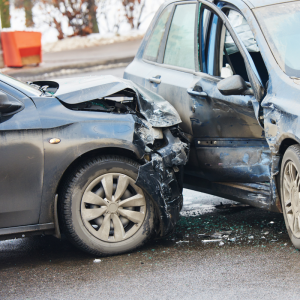What are Parties?
Parties are individuals, corporations, or associations involved in a lawsuit as plaintiffs or defendants.
According to Black’s Law Dictionary, parties are defined as “persons or entities actively participating in a transaction or proceeding.” Due to the formal nature of the proceedings, each party has specific rights, duties, and interests related to the legal matter. Parties can include plaintiffs or those bringing the lawsuit, and defendants, those who refute the allegations; they can also include third-party defendants who are asserted as being partially responsible for the plaintiff’s claims.
The most important responsibility of a party is the burden of proof. In a civil case, this falls to the plaintiff. Understanding the roles and identities of the parties is crucial for determining legal responsibilities, enforcing rights, and reaching resolutions in disputes.
More information about Parties
Truck Accident Questions & Answers
Q: What can I do to protect myself after an accident with a big truck or tractor-trailer?
A: Truck and bus cases are very complicated and require the immediate attention of a truck accident lawyer who has a record of success in handling big truck cases. Trucking companies will typically have unlimited resources that include teams of lawyers and experts who are prepared to fight against any lawsuit you may file as a result of an accident—regardless of how injured you are. If you have been hit by a truck, the best way to protect yourself is to contact an experienced truck accident attorney who will defend your rights and ensure that you are fairly compensated.
Q: What should I do at the scene of a truck accident?
A: While you are at the scene of the accident, you should do the following:
- Remain calm and remain in your vehicle (unless it’s too dangerous to do so)
- Turn on your hazard lights
- Call 911 even if your accident seems minor
- Seek medical attention for any injured drivers or passengers
- Unless necessary, […]
More information about Parties
Semi Truck Accidents
A semi truck accident can be a life-altering experience for both you and your family. You could be facing serious injuries that can take months if not years to recover from. Your family could suffer the financial burden of paying the medical expenses without the help of your income. In many cases, the injuries sustained in the accident may be fatal and your family will be left to pick up the pieces afterward. If you get into a trucking accident with a semi truck, do you know what your next steps should be?
For more than 60 years, the truck accident lawyers at Munley Law have represented drivers, passengers, pedestrians, and truck drivers who have been seriously hurt in accidents with semi trucks. If you or someone you love was hurt in a crash with a semi, you will need someone on your side to make sure the trucking company is held responsible. […]
Read MoreMore information about Parties
Northampton, PA Personal Injury Lawyer
When life takes an unexpected turn, like getting hurt in an accident, it can feel overwhelming. In Northampton, PA, having a skilled personal injury lawyer by your side can make all the difference in how you move forward.
having a skilled personal injury lawyer by your side can make all the difference in how you move forward.
Whether you’re dealing with a car accident, a workplace injury, or any other situation where you’ve been harmed because of someone else’s negligence, our law firm is here to help you get the justice and maximum compensation you deserve.
About Our Experienced Northampton Injury Lawyers
For over 60 years, Munley Law Personal Injury Attorneys’ award-winning lawyers have been fighting for accident victims in Northampton, Nazareth, Allentown, Stroudsburg, Easton, Philadelphia, Bethlehem, and across Pennsylvania’s Lehigh Valley. With an experienced and compassionate attorney, you don’t have to face the battle for fair compensation alone.
Since 1959, our law offices have built a reputation for preserving critical evidence, […]
Read MoreMore information about Parties
West Virginia Car Accident Lawyer
Across the nation, car accidents are an all too common cause of death, injury, and extensive emotional and psychological  damage. In 2019, West Virginia saw 260 fatalities from car accidents, and in 2015, car accidents caused around 8% of all injury-related hospitalizations in the state. Too many lives have been impacted and lost as a result of car accidents.
damage. In 2019, West Virginia saw 260 fatalities from car accidents, and in 2015, car accidents caused around 8% of all injury-related hospitalizations in the state. Too many lives have been impacted and lost as a result of car accidents.
If you or a loved one has been a victim of a car accident in West Virginia, know that you do not have to fight this battle alone. The aftermath of an accident can be even more stressful and overwhelming than the accident itself, especially as you try to balance your recovery with all the complex logistics and legalities of your situation. But there is hope: with the help of an experienced car accident lawyer, you can take on your case with confidence. […]
Read MoreMore information about Parties
Can I Sue My Neighbor for an Injury on Their Property?
When you’ve been injured on a neighbor’s property, you might feel confused, upset, and unsure about what to do next.
You may wonder about your options if you’ve suffered an injury while visiting next door. The short answer is yes, you can sue your neighbor for an injury on their property, but there’s more to consider before taking that step.
When an injury occurs on a neighbor’s property, the question of legal recourse often arises. The ability to sue a neighbor for such an injury depends on several factors and involves understanding premises liability law. Call a premises liability lawyer at Munley Law for a free consultation to review your legal options.
Why You Might Sue Your Neighbor for an Injury on Their Property
While suing a neighbor can be a difficult decision, there are several legitimate reasons why you might need to take this step if you’re injured on their property:
- Medical Expenses: If you’ve incurred significant medical bills due to the injury, […]









